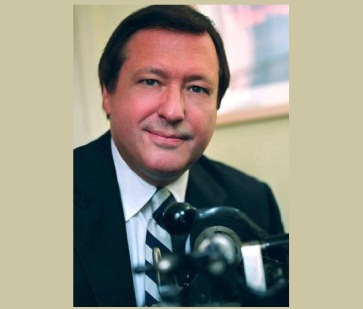The New Radio Station Is A TV Station. - Walter Sabo

RADIO ECONOMICS BECOMES TV ECONOMICS. The radio station of the near future will look like...a TV Station. Until 1970, most TV stations, even in the smallest towns had live on-air studios. Some of them had three full live studios. They produced, in house, local shows for many hours a day: A kid's show, entertainment shows, cooking, dance shows. Right now at KPIX TV in San Francisco there are three beautiful studios, one with studio audience seating and a separate entrance for the audience. Only one studio, the news studio, is in use.
DARK AFTER 10 AM EVERYWHERE.
In small and medium markets many radio stations are already "dark" after 8 or 10 AM and this trend will continue. The position of "program director" at a local TV station was eliminated or mutated in "program and promotion director" or "program and research director" as it is at Fox O&O's. As more radio stations air programming from outside sources, the job of program director will progressively evolve to include other skills. Clear Channel has already told their program directors that they must generate revenue.
The reality is that total radio revenues are down 5 BILLION dollars in the past 5 years. They will be down 1-4% this year vs. last year.
Operators who have made aggressive cost cuts based on this reality are not evil, they have done what is necessary to stay on the air. Don't blame Radio's sales effort. Blame the toad bastards who ran Lehman Brothers who began the collapse of the economy in 2008.
IT'S THE -RETAIL- ECONOMY.
Radio revenue is 100% dependent upon the retail economy. In your city there is block after block of empty storefronts. The retail economy remains in a dust-bowl Depression. As long as there is no commercial credit and no retail growth there will be no radio sales growth. STOP wasting your time on daily pacing reports (never useful even in the best of times) and recognize that the profound change in radio management was not deregulation but the economic collapse of 2008.
To THRIVE resources should be deployed without romance to the past and that is what Cumulus and Clear Channel are doing.
YES RADIO MUST BE HYPER LOCAL TO THRIVE.
• Regardless of format, smart money will flow to a station's capabilities to cover local news and events in a manner appropriate to the format's audience. During hurricane Sandy, for example, Program Director Sharon Dastur at Z-100 turned the station into a brilliant mirror of the informational needs of New Yorkers. Z-100 was BY FAR the best radio news source in the city.
A long history of syndicated hits, from Paul Harvey to American Top 40 repeatedly proves that radio listeners want top notch entertainment regardless of the source. But the only reason radio has a reason to exist today is with hyper-local content between the songs or between syndicated shows. Otherwise, it's an iPod WITH commercials.
MUSIC SELECTION ADOPTS REAL TIME.
• Social media is more than LIKES. It will now be the driver for music selection. If a station sticks to traditional methods of music selection---waiting for the labels to push a song---not only will stations miss hits, they risk airing songs too late. For example, CUPS BY ANNA KENDRICK was an Internet hit 6 months ago. Amazingly the label is running ads in the trades supporting CUPS now. The song is from the movie PITCH PERFECT which was released 6 months ago. Anna performed the song on David Letterman 6 months ago. It was an online video phenomenon 6 months ago. Why is it being "worked" now?
Social media no longer simply introduces and makes a song familiar to the audience. If a station waits 6 months to add an online hit, social media may have BURNED it out to the audience.
Walter Sabo is the Chairman of Sabo Media, a company that offers executive-on-demand services. He has worked on-site to build out new digital content platforms such as Sirius/XM. His team was the first to discover the marketing clout of web stars, Internet organic video producers. They founded OMMA award winning HITVIEWS. The company placed brands such as CBS, TiVo and Mountain Dew inside UGC. In FM broadcasting he is a leader in the profitable sector of FM Talk and held executive positions at NBC and ABC Radio. He can be reached at walter@sabomedia.com.
Read all Walter's MediaBizBloggers commentaries at Sabo Strategies.
Check us out on Facebook at MediaBizBloggers.com
Follow our Twitter updates @MediaBizBlogger
The opinions and points of view expressed in this commentary are exclusively the views of the author and do not necessarily represent the views of MediaBizBloggers.com management or associated bloggers. MediaBizBloggers is an open thought leadership platform and readers may share their comments and opinions in response to all commentaries.


